Dad makes breakthrough in brain cancer research for dying daughter
Josephine Dun was diagnosed with a fatal form of brain cancer last year and has lived twice as long as originally predicted thanks to the dedication of her cancer researcher father who has been working to find a cure. Now, Dr Matt Dun may have found the breakthrough he needs to help his daughter and others.
An Australian cancer scientist who is working around the clock to save his daughter from a fatal form of brain cancer may have found a significant drug breakthrough.
Dr Matt Dun’s four-year-old Josephine was diagnosed with the most aggressive of brain stem tumours, called diffuse intrinsic pontine glioma (DIPG) in February last year. It has an average survival rate of just eight to 12 months. It kills about 20 children a year in Australia.
Survival after radiation, which is the only standard treatment to shrink the tumour, is usually just one to two months.
So Dr Dun vowed to find a weak link that could be targeted by new drugs as DIPG does not respond to any chemotherapy drug.
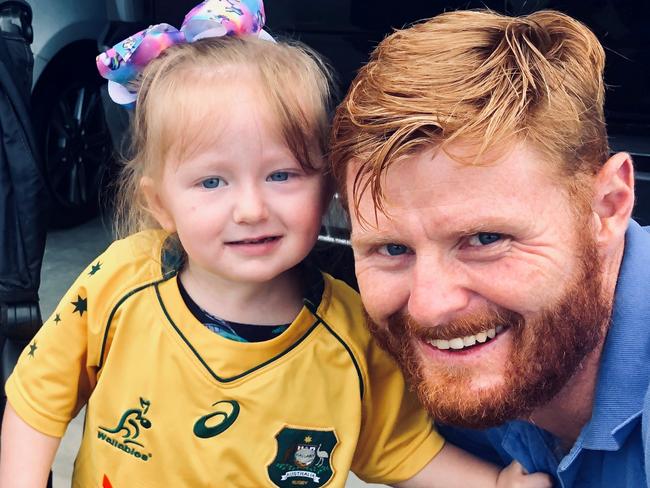
Dr Dun, a leukaemia researcher and Newcastle University biochemist from the Hunter Medical Research Institute, crowd-funded the groundbreaking research himself.
When The Sunday Telegraph revealed his mission, readers chipped in more than $60,000 to fund Dr Dun’s research.
MORE FROM JANE HANSEN:
SYDNEY KIDS TRANSPLANT CENTRE TO EASE FAMILY TRAUMA
GRAN ACHIEVES DREAM OF BEING A NURSE AFTER SON’S MURDER
Late last year he embarked on mapping the protein sequences that make up DIPG tumours from donated biopsies, including his daughter’s.
He and his team have been investigating how the cancer cells communicate. They found that some, including his daughter’s tumour, expressed a number of mutations that produced what is called PI3-kinase which drove the cancer growth, so he went searching for a drug that may interrupt the pathway of PI3-kinase and he found it.
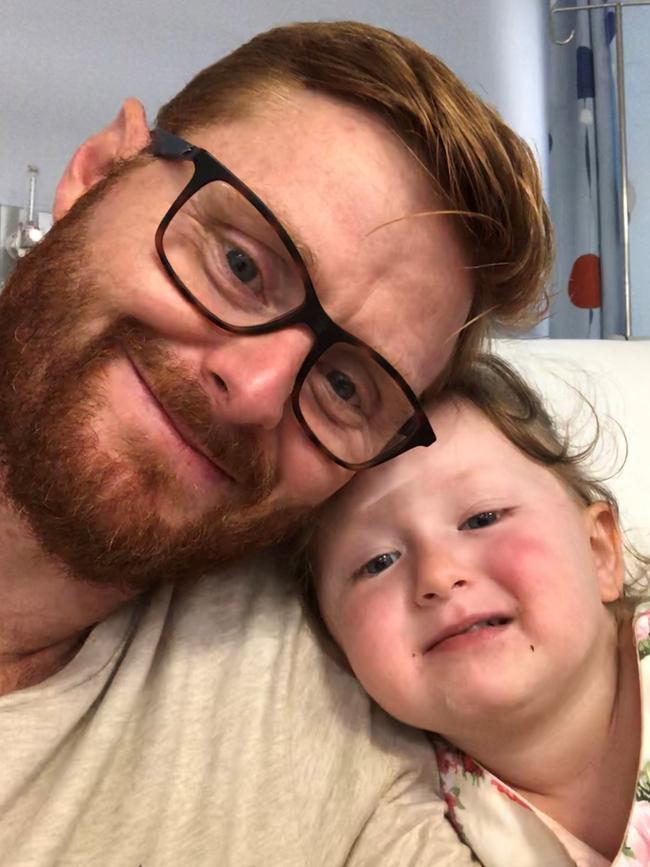
“Once I got my hands on the data I went about finding the most exciting and promising drug that could target this PI3-kinase pathway. The tumour really seems to be growing and signalling down this pathway,” Dr Dun said.
“I did a literature search and found the most promising drug and I knew that getting drugs across the blood brain barrier was my first hurdle, so when I saw GDC-0084 and that it was in trial and had a safe toxicity profile so I wrote to them and started testing it in the lab in June last year.”
The drug GDC-0084, made by Australian company Kazia, is a PI3-Kinase inhibitor, so it blocks the communication that drives tumour growth, but most importantly, it is a drug that can cross from the blood into the brain, a feat few chemotherapy drugs can.
“GDC-0084 is one of the most potent PI3-kinase inhibitors around and it has the potential to cross the blood brain barrier and this is really important when we are trying to treat a brain stem cancer, because getting drugs to the site is one of the biggest challenges facing kids with DIPG,” he said.
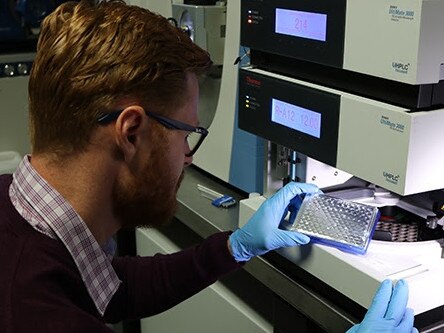
“Once I found a drug in trial for other forms of brain cancer (glioblastoma), I wrote to the company and asked if I could use GCD in models of DIPG.
“We have tested 11 DIPG samples in the lab and they are all sensitive to the drug.”
Dr Dun began to trial the drug, in combination with others, on Josie late last year after applying for ethics approval.
“Our clinician has had to present to the hospital ethics and management board each time but I provided preclinical evidence on each instance and provided safety profile on each drug.
“She started in the end of November when we had obvious clinical progression, the tumour was going quite rapidly again,” Dr Dun said.
“We are fighting hard but we are not yet winning the battle. Once DIPG grows again after radiation, the patients live between one and two months and now we are into eight months, we are fighting hard but we are not winning.
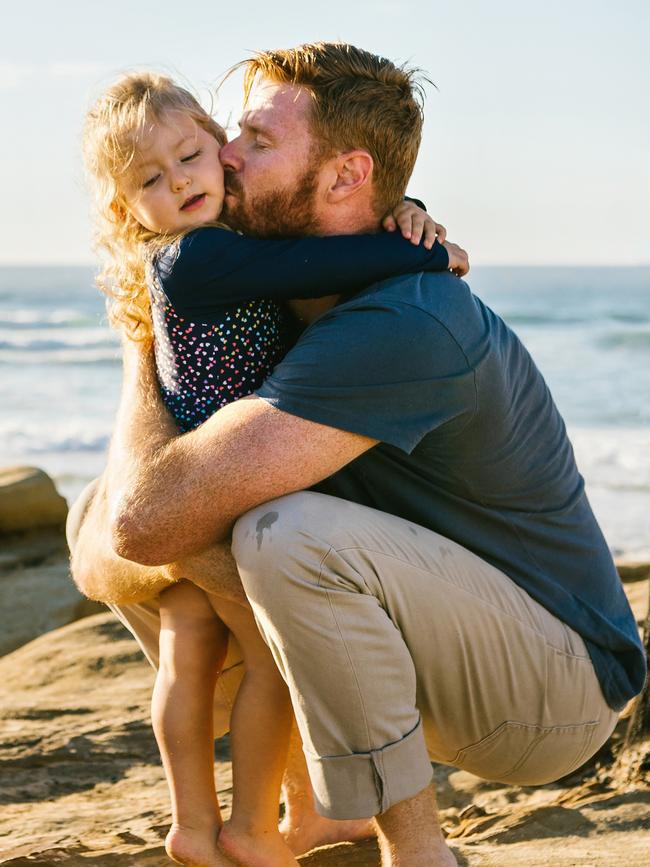
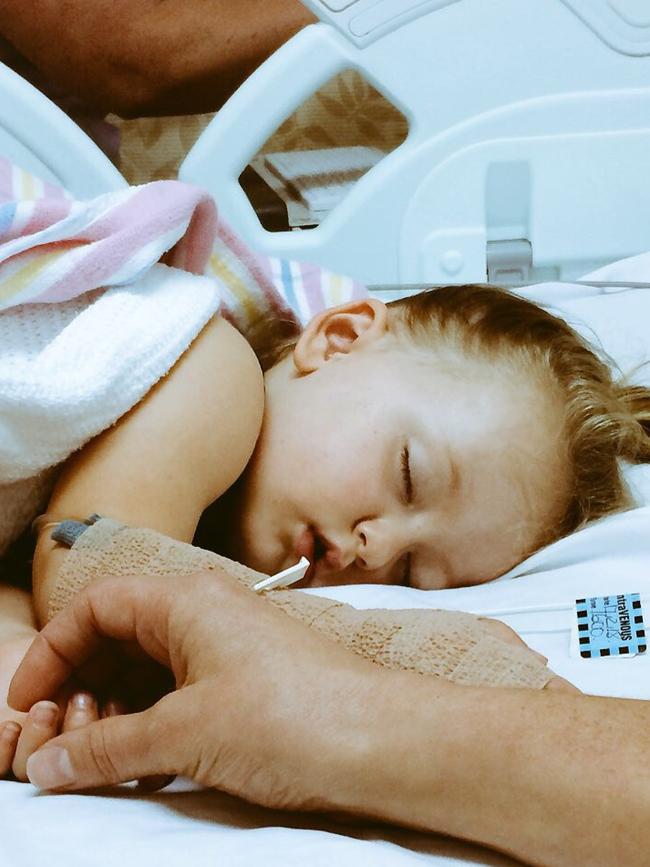
“We are patching up, we are using band aid approaches to buy ourselves time until someone comes up with a miracle immunotherapy, we are not winning, but we are fighting tooth and nail.”
Josie has lived twice as long as originally predicted and it is testament to the dedication of a father who now sleeps right next to his daughter at night, while fighting to find a cure during the day.
“She is a cool kid, she is spunky, and she just does it. Every day has huge challenges. It’s a two person, 24-hour a day, seven day a week marathon. I sleep with her every night since progression, I’m in the bed because she can’t roll over so I roll her over a couple of times a night and she wakes frequently during the night in pain. It’s just a nightmare,” he said.
The father of three young children, and his GP wife Dr Phoebe Dun have also started a registered charity called RUN DIPG (rundipg.org) to help fund research for DIPG which has been underfunded for decades.
“I’m just doing what everyone else would do. I’m just fortunate I can do something about the therapeutic side,” Dr Dun said.


